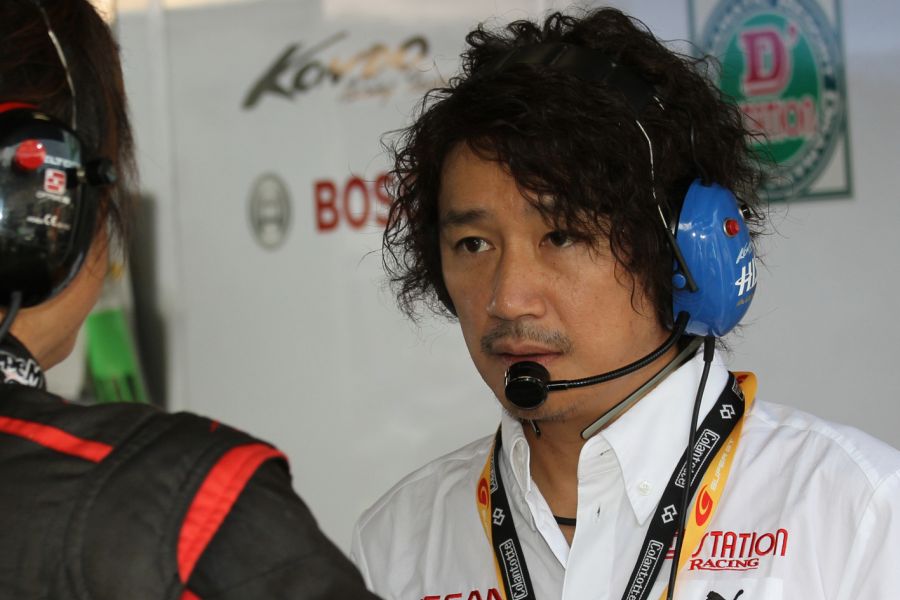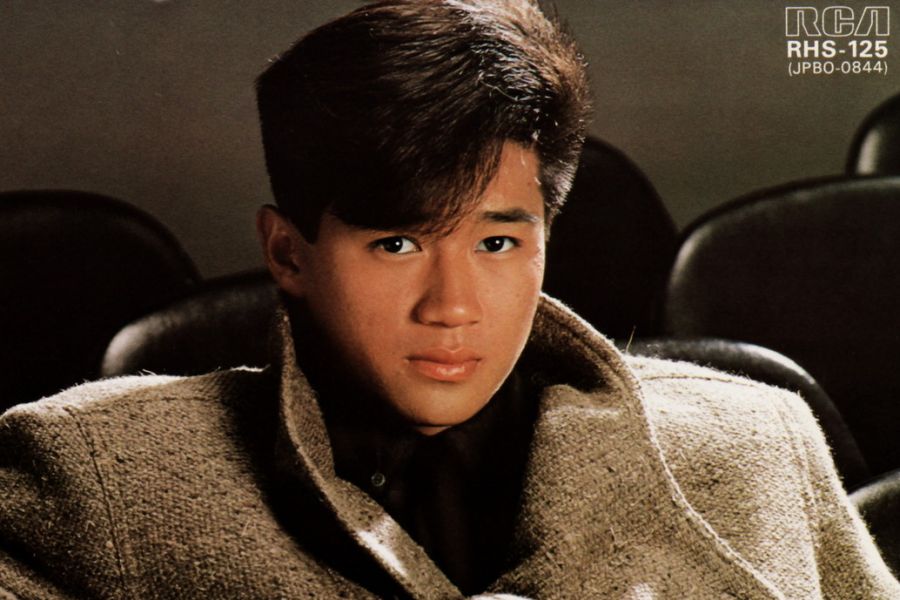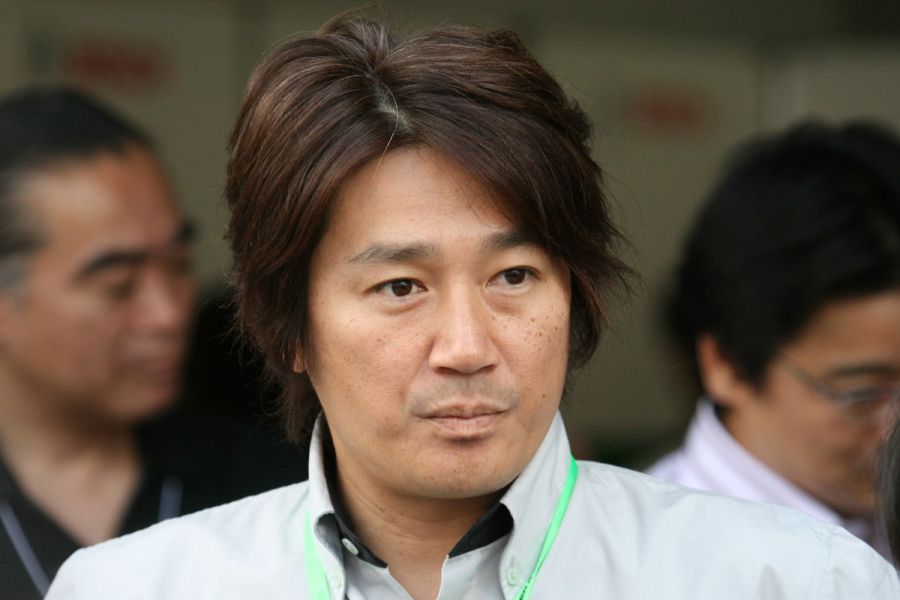Career Summary:
Masahiko Kondo

- July 19, 1964
- 60
- Japan
- Not Active
- 134
- 2
- 6
- 2
- 1
- 1.49%
- 4.48%


Masahiko Kondo is a Japanese singer, actor, former racing driver and an owner of Kondo Racing team, which he established in 2000. Masahiko raced the most in Formula 3, Formula Nippon and Japanese GT Championship, retiring from racing in 2003 without scoring some notable results.

Masahiko Kondo
Born in July 1964 in Yokohama, Masahiko started his music career as a teenager, as a member of the famous talent agency Johnny & Associates. His debut single "Sneaker Blues" was immediately the number 1 on single charts in 1980. In March 1981, he released his first studio album.
He was popular over the 1980s, taking the Grand Prix award at the 29th Japan Record Awards in 1987 with his song "Orokamono".

A picture of young J-pop star Masahiko Kondo
Following his first experience with race cars in 1984, Masahiko Kondo started his racing career in 1988, entering the Japanese Formula 3 Championship and selected races of the Japanese Touring Car Championship.
Kondo competed in JTCC until 1993 and in Formula 3 until 1993, driving for Hoshino Racing in his last F3 season. In touring cars, he was driving Cherena Racing's BMW M3 in last years of competitions.
In 1994, Kondo started his GT racing career and also made a debut at 24 Hours of Le Mans. In his first attempt at Circuit de la Sarthe, he was driving Porsche 962C GTi for ADA Engineering/Team Nippon, completing 189 laps and not being classified.
Until the end of his career, Kondo returned to Le Mans six more times, never achieving some great success. He was driving Nissan Skyline GT-R LM for Nismo in 1995 (fifth in GT1 class) and 1996 (DNF). In 2000, he was 8th overall in Panoz LMP-1 Roadster-S of TV Asahi Team Dragon. In 2001, he didn't finish the race in Team Oreca's Chrysler LMP.
In 2002 and 2003, Masahiko raced at Le Mans with his own team, driving a Dome S101-Judd or Dome S101-Honda. In 2002, he recorded DNF and then he finished 13th overall in 2003.

Masahiko Kondo (left) with teammates Ukyo Katayama and Ryo Fukuda at 2003 Le Mans 24h
After switching to GT racing, Kondo's main competitions was the Japanese GT Championship (now Super GT).
In 1994, he made two starts in a Porsche 962C and won the Special GT Cup at Fuji, sharing a car with Anthony Reid. Next year, Kondo and Reid were the winners in GT race at Sportsland Sugo in a Porsche 911 GT2.
In 1995, Kondo also added Formula 3000 commitments next to his GT Championship schedule. He continued with a double programme in 1996, driving a Reynard-Honda for Navi Connection Racing Team in Formula 3000 and Nissan Skyline GT-R for Nismo in GT Championship. Sharing the #556 Nissan with Toshio Suzuki, he scored one podium.
In 1997, Kondo scored no wins or podiums in both competitions. In 1998, he moved to GT300 class of the GT Championship, driving a Nissan Silvia and scoring one podium, together with Takayuki Aoki.
In 1999, Kondo returned to GT500 class and joined Toyota Team Cerumo to drive the #32 Toyota Supra. The last season with a double schedule was 2000 when Masahiko was driving the #32 Toyota Supra for Team Cerumo and the #3 Reynard-Mugen for his own team in Formula Nippon.

Masahiko Kondo is leading his own racing team since 2000
The 2000 Formula Nippon season was the first for Kondo Racing team. The team had two cars, the #3 for Masahiko Kondo and the #4 for Takeshi Tsuchiya. The team finished tenth among thirteen teams. Masahiko was 15th in his last Formula Nippon season.
In 2001, Kondo raced in GT Championship only, still driving a Toyota Supra for Team Cerumo, partnering Ukyo Katayama. In Formula Nippon, his team was running cars for Yuji Tachikawa and Katsutomo Kaneishi, finishing in the fifth place.
Masahiko Kondo's last season in the Japanese GT Championship was 2002. He spent it in the #33 Toyota Supra, sharing a car with Ukyo Katayama or Hayanari Shimoda. Kondo recorded two starts at Le Mans in 2002 and 2003 and it was an end of his career.
Kondo Racing continued to race in Formula Nippon and entered the Super GT Series in 2006. Today, the team still competes in those two premier Japanese championship with #3 and #4 Toyotas and #24 Nissan GT-R, plus in Super Taikyu Series.

Masahiko Kondo is celebrating a victory of his driver Nick Cassidy in Super Formula race
In 2005, Kondo decided to relive his music career for the 25th anniversary of his debut. In 2006, Sony released Kondo's tribute album Matchy Tribute, but also his greatest hits album Matchy Best. In 2007, he released his first DVD. In 2010, Kondo rounded his career with the second Japan Record Award as the Best Singer.
Photos: Kondo Racing, Getty Images,

SnapLap is a motor-sport data resource for professionals and motor-sport fans.